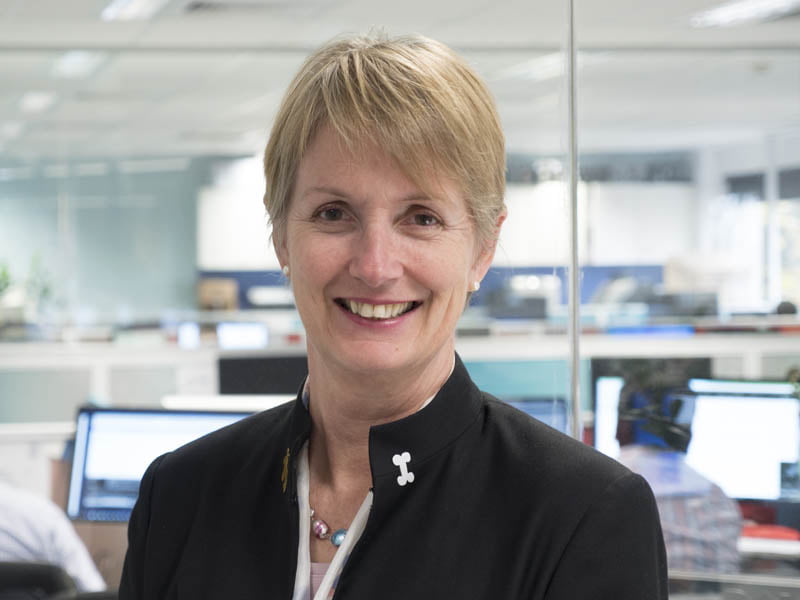Dr Katherine Woodthorpe has called for more secure science funding and greater respect for the profession at a time when it is under attack from “angry wild mobs” and fundamental research is being scrutinised by the federal government.
In a wide-ranging Ralph Slatyer Address in Canberra on Wednesday, Dr Woodthorpe said scientists in Australia are now being derided and treated with suspicion, despite their work saving lives during the pandemic and being vital to global challenges like climate change.
At the same time the amount of investment in research and development in Australia has plummeted well below the OECD average and universities are under renewed pressure from the federal government to translate their work into direct economic benefits.

Dr Woodthorpe called on scientists to “step up” and continue to communicate the value of their work, despite an at times “toxic” response.
“We need to focus on the impact and benefit of not only applied research but also so-called blue sky research – the bedrock upon which we build to deliver impact further down the line,” Dr Woodthorpe said in her address commemorating Australia’s first chief scientist.
“And we need to persuade the general public that the scientific process delivers outcomes for their benefit. We mustn’t let the keyboard warriors bully us from explaining the facts.”
A stronger emphasis on science in primary schools upwards will help in the long term, Dr Woodthorpe said, but it is also up to scientists to be “firmer in standing up to the bullying and denunciation that comes from vested interests” now.
“I know many climate scientists for example, who privately wish that we’d been stronger years ago in communicating our messages,” she said.
“The very rigorous approach of science where we talk about probabilities and error bars etc play into the hands of those who twist that rigour to claim that climate science is inexact and we don’t know what we are talking about.”
Australian scientists need more support too, she said, calling for a lift in the 1.79 per cent of GDP Australia now spends on research and development – well below the OECD average of 2.48 per cent and less than half of leaders like Korea and Israel.
“[I] wish that that we do not keep letting science funding slip as a percentage of GDP,” Dr Woodthorpe said.
“It should be set as a percentage to maintain. We sit in the middle of OECD countries with respect to the total investment in science. We surely should hope to do better.”
Asked about the value of fundamental research, Dr Woodthorpe said it was important not to underestimate its foundational role.
“All of those basic sciences lead to the opportunity we have to do something that’s right at the very functional end. So, it’s a portfolio. We always need to do all of them and finding that balance is always the tricky bit.”
The federal government is currently reviewing university commercialisation outcomes, with Education minister Alan Tudge questioning if the billions of dollars spent on fundamental research in Australia is producing a “commensurate impact on our society”. It has triggered concerns commercialisation reforms could come at the expense of fundamental research funding.
In response to questions about the commercialisation push on Wednesday, Dr Woodthorpe said it is important to remember the role universities play and the extent to which they can commercialise work.
“[Universities are] there to educate,” she said.
“In terms of the research area, they’re there to grow the next generation of scientists and researchers in whatever field, [including] in the arts or humanities. And then they’re there to do the research, and to some extent commercialise it.”
Australia’s Cooperative Research Centres, which Dr Woodthorpe has been involved in for nearly all of their 30 year history, had produced excellent research commercialisation outcomes by partnering universities with other stakeholders, she said.
“Something we’re really good at in Australia is kind of beating ourselves up sometimes saying ‘we don’t do stuff well.’
“But if you look at the US, and their plethora of universities, there’s like four that make a buck out of commercialisation in any serious way. So, I think that we are doing as well as I think we could probably like to.
“We could do better, we could learn to do better, but it’s never as simple as we should just commercialise more.”
Do you know more? Contact James Riley via Email.

